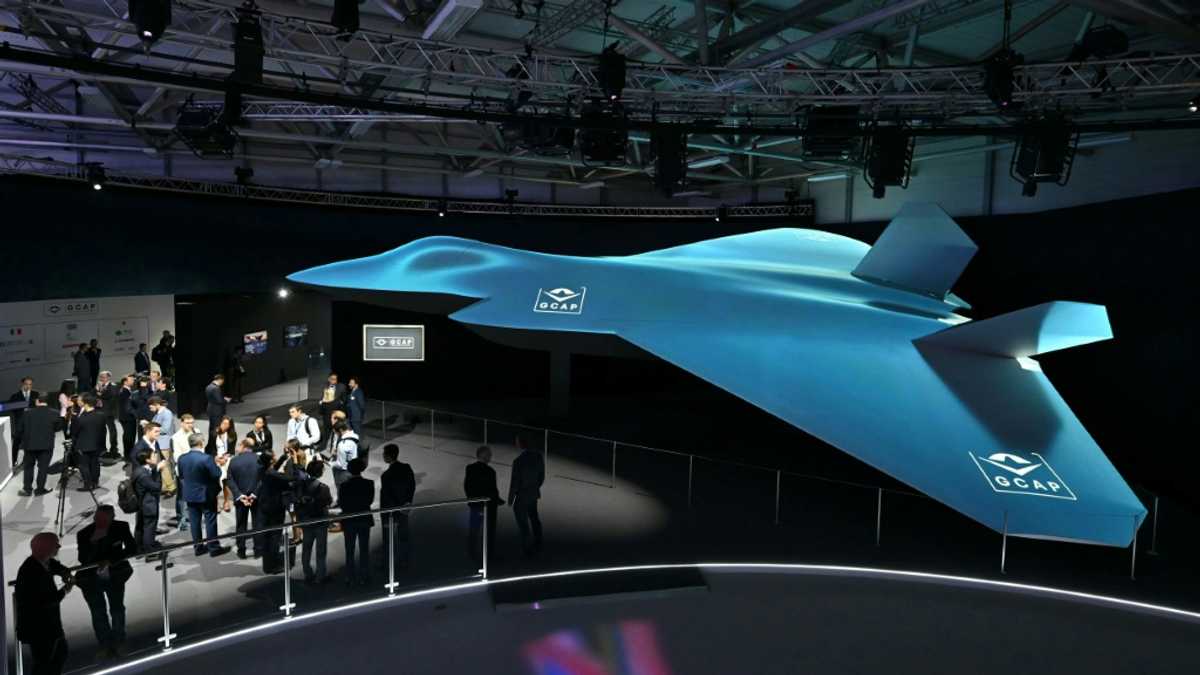Delegates look at the Global Combat Air Programme (GCAP) 6th generation fighter jet concept design at the Farnborough International Airshow 2024.
Photo: JUSTIN TALLIS / AFP
Source: AFP
The UK, Italy and Japan on Friday launched a joint venture to develop a supersonic next-generation fighter jet by 2035, replacing the Eurofighter Typhoon.
Britain’s BAE Systems, Italy’s Leonardo and Japan Aircraft Industrial Enhancement Co Ltd (JAIEC) will each hold a 33.3 percent share in the new venture, “marking a pivotal moment for the international aerospace and defence industry,” they announced in a press release.
JAIEC is a firm jointly funded by Mitsubishi Heavy Industries (MHI) and the Society of Japanese Aerospace Companies.
“Today’s agreement is a culmination of many months working together with our industry partners and is testament to the hard work of everyone involved in this strategically important programme,” said Charles Woodburn, BAE Systems Chief Executive.
The venture will “bring together the significant strengths and expertise of the companies involved to create an innovative organisation that will lead the way in developing a next generation combat air system, creating long-term, high value and skilled jobs across the partner nations for decades to come,” he added.

Read also
Nigerian army explains strategy that made 129,417 terrorists surrender in 6 months
The three partners have agreed to form a new company under the Global Combat Air Programme (GCAP), a multinational initiative established by the UK, Japan and Italy in 2022 to develop a sixth-generation stealth fighter to replace the Typhoon and Japanese F-2.
The joint venture is expected to be established by the middle of 2025 and will undertake the design and development of the GCAP aircraft.
It will subcontract the manufacturing and final assembly of the aircraft to BAE Systems, Leonardo, MHI and the wider supply chain.
The aircraft is due to enter service in 2035, ahead of the competing European project FCAS — led by Paris, Berlin and Madrid — and is expected to be in service until 2070.
Source: AFP
